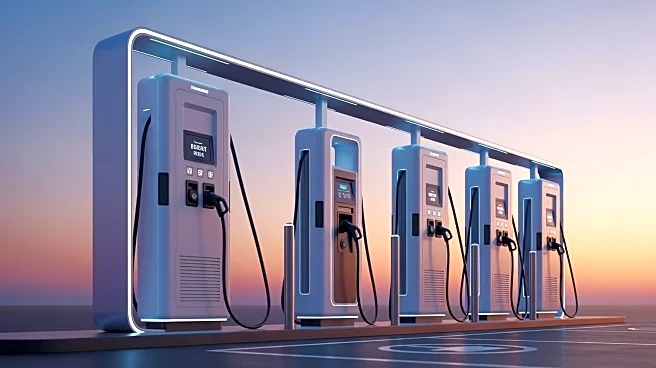What's Happening?
Rivian Automotive, an electric vehicle manufacturer based in Irvine, is set to lay off approximately 600 employees, which constitutes about 4.5% of its workforce. This decision comes as the company seeks to reduce costs in response to a slowdown in electric vehicle demand.
The layoffs follow the expiration of a federal tax credit that previously provided significant savings to electric vehicle buyers. Rivian's CEO, RJ Scaringe, communicated to employees that the company is making structural adjustments due to changing market conditions. Despite a 32% increase in vehicle sales in the third quarter, Rivian has revised its 2025 delivery forecast downward, now expecting to deliver between 41,500 and 43,500 vehicles, down from an earlier estimate of 46,000.
Why It's Important?
The layoffs at Rivian highlight broader challenges facing the electric vehicle industry, particularly as federal incentives are rolled back under the Trump administration. The removal of the tax credit, which saved buyers up to $7,500, is expected to dampen sales, making electric vehicles less affordable for many consumers. This situation is compounded by recent auto tariffs that have increased the cost of cars and parts. The slowdown in demand poses a significant challenge for companies like Rivian and Tesla, which focus solely on electric vehicles. The industry is at a critical juncture, needing to adapt to changing economic conditions and consumer preferences.
What's Next?
Rivian plans to introduce a new, more affordable electric vehicle model priced at $45,000 to boost sales. This move aims to attract a broader customer base in the absence of federal tax incentives. The company is also expected to report its earnings on November 4, which will provide further insights into its financial health and strategic direction. As the electric vehicle market adjusts to these new dynamics, manufacturers may need to explore additional cost-cutting measures or innovations to remain competitive.

















